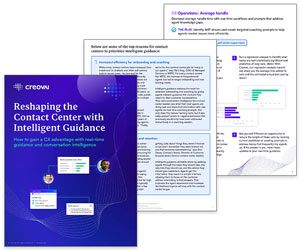Paul Cooper looks at why so many companies are complacent about poor customer service.
A while ago now I came across some very interesting research. It was a study of some 400 organisations that were asked to rate the others on what they thought of their customer service.
Only 8% of the organisations involved got high ratings for their customer service levels from all the others. But about 80% of the organisations rated THEMSELVES as being really good!
I’ve incorporated this into my speeches at conferences, and I call it THE COMPLACENCY GAP.
Should we be surprised?
Well, not if you talk to many of these organisations that are consistently rated poorly over a period of time.
Now, it is not my policy to name and shame, and many are honestly trying to improve their game, but you all know who they are.
However, what happens when we, or more commonly, the media, contact them and ask about their performance and their poor service?
Well, in every case that I have heard or read, they have their own data that tells them how wonderful they are and that everything in the garden is rosy!
The rest of the world has got it wrong!
What can I conclude from that?
- They don’t experience their own performance
They clearly aren’t in a position to experience their own performance.
Probably the management and even staff have ways to get around such things as that terrible switchboard, automatic answering system, or call centre that the rest of us have to suffer.
- They don’t use their own products or services
Perhaps they don’t even use their own products and/or services so have never experienced the frustration.
- They ask their own questions
Maybe they are doing surveys. Fine. But they are asking the sorts of questions to which they want to know the answers, not those that the customers want to tell them about.
Here I’m particularly thinking of those stupid cards in hotels that are all about confirming whether they have got the hygiene things right – clean rooms, food quality, etc. Rather than the service and performance of their process and staff – website going into a loop, receptionists who don’t speak English, staff talking to each other or not answering the phone, etc.
- Senior management doesn’t answer phone calls
I’ll bet the senior management hasn’t met a customer in years, and a “back to the floor” programme would scare the pants off them.
- Lack of employee feedback
I’ll also bet that they don’t have any credible feedback system for staff to tell management what’s going wrong with the organisation. And yet staff ALWAYS know what’s wrong long before customers, whether it’s the computer programs, the telephone systems, the processes or the procedures.
- The board and management are feared
Lastly, and perhaps most scarily, this is probably an organisation where the board and management is feared and so no one wants to bring, or see, bad news.
These organisations believe that getting the level of complaints down is more important than knowing what they are, and if they are recurring.
They say customer service is important and then only measure short-term sales and performance results.
They think that giving great service costs more money, rather than it actually costing less.
They will have high headcount turnover of staff (and probably management and board members too) and think that either this is healthy, or a feature of their industry.
Most of all, they’ll not be pleasant places in which to work.
I wouldn’t want to work there myself or, for that matter, have my family work for them either.
There are enough great, or potentially great, organisations out there for us not to have to suffer this sort of thing. I really hope that you’re working in one yourself, and are very happy with them.
If not, why not?
Paul Cooper is an Independent Consultant & ex-Executive Director of the Institute of Customer Service.
Author: Megan Jones
Published On: 26th Feb 2014 - Last modified: 28th Oct 2025
Read more about - Call Centre Management, Customer Service, Management Strategies, P Cooper









































